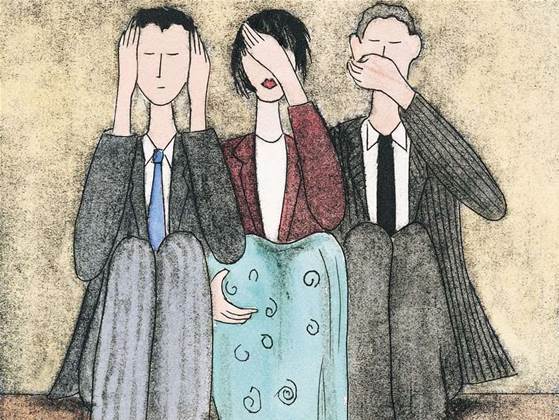Phillips has listed “insufficient detail, unrealistic timeframes and unclear funding arrangements” in the Internet filtering expression of interest as reasons the ISP chose not to participate in the real world trials. Netspace is also using the main survey result – that almost 80 percent of its customers don’t want mandatory Internet filtering – to reinforce this decision.

“We considered these barriers to participating in the trial in any meaningful way,” he said.
“Instead we are contributing to the discussion and debate around internet filtering in another way, by engaging our customers to find out what they want and how they feel about the Government’s ISP Filtering policy.”
But would Netspace really have us believe that this survey has generated more useful information than a real-world trial ever could?
I’m almost certain if you polled the customers of other ISPs that have agreed to participate in the real world filter trials they wouldn’t support mandatory implementation either. But those ISPs are still participating.
Oddly, the only piece of interesting data the survey has contributed to the debate somewhat supports filtering – as long as we get to choose whether or not we have it.
More than 800 respondents to the survey said they would buy a filtering service or ‘clean feed’ from their ISP if it was available. Another 2500 would ‘maybe’ buy it.
This is a rather large figure that seems to show support for a clean feed. Not a mandatory one, mind you, but the Government will likely take some solace from the idea that there is community support for a tool that can block ‘inappropriate’ content.
We asked Phillips whether the result invalidated the rest of the survey.
“Without putting words in anyone’s mouth, and extrapolating too far from the survey results themselves, I think it is safe to say that just because someone doesn’t want mandated ISP level filtering for all Australians – and doesn’t want to pay extra for mandated ISP filtering – it doesn’t mean they wouldn’t consider opting in to such a service if a suitable one was offered and if it met their filtering needs,” said Phillips.
“If 34.5 percent of our customers either want or would consider opting for a clean feed service, we have to take that into consideration.
“We also must understand that just about 65 percent of our customers said no, and that when it comes to mandatory ISP level filtering almost 80 percent of our customers said no.”
It seems the Internet filtering debate is now – as it always has been – just a matter of implementation. Few people support a mandatory clean feed (we certainly don’t) but a good percentage will consider one if it works and they have a choice to use it or not.
NetAlert version two anyone?


_(28).jpg&h=140&w=231&c=1&s=0)
_(36).jpg&h=140&w=231&c=1&s=0)







 iTnews Executive Retreat - Security Leaders Edition
iTnews Executive Retreat - Security Leaders Edition
 Huntress + Eftsure Virtual Event -Fighting A New Frontier of Cyber-Fraud: How Leaders Can Work Together
Huntress + Eftsure Virtual Event -Fighting A New Frontier of Cyber-Fraud: How Leaders Can Work Together
 iTnews Cloud Covered Breakfast Summit
iTnews Cloud Covered Breakfast Summit
 Melbourne Cloud & Datacenter Convention 2026
Melbourne Cloud & Datacenter Convention 2026
 The 2026 iAwards
The 2026 iAwards











_(1).jpg&h=140&w=231&c=1&s=0)



